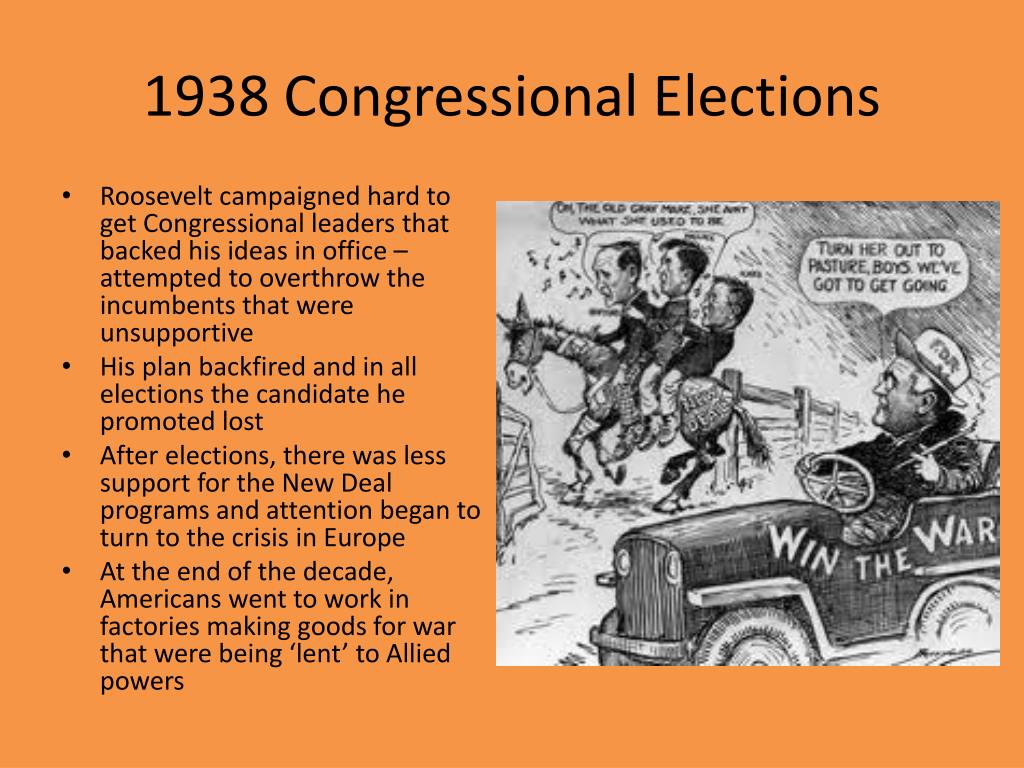Reference




OpenAI's Answer
During the 1938 Congressional elections, President Roosevelt's initiatives, particularly his support for New Deal policies, faced significant challenges. Here’s how his efforts impacted the elections:
-
Campaign Against Conservatives: Roosevelt campaigned strongly against anti-New Deal Democrats. However, in most cases, the conservative candidates won. This resulted in a coalition of Southern Democrats and Republicans dominating Congress, effectively curbing further New Deal reforms until the 1960s source.
-
Loss of Seats: The Democrats lost six Senate seats and 71 House seats. This was seen as a striking shift against Roosevelt's administration, diminishing the New Deal's momentum source.
-
Conservative Influence: A June 1938 fireside chat by Roosevelt aimed to promote liberal candidates in the Democratic primaries, framing the elections as a clash between New Deal supporters and conservatives. Despite these efforts, conservative forces gained significant ground source.
Overall, Roosevelt's attempts to advance his New Deal agenda through the 1938 elections were largely unsuccessful, leading to a significant conservative backlash that hampered further legislative reforms.